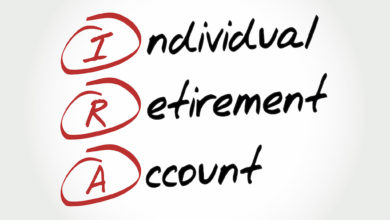Shining A Light On Your Taxes In Retirement
What You Should Know About Your Taxes in Retirement?

You’ve spent much time and effort accumulating money for retirement. It is critical to understand how taxes might affect what portion of that money you actually keep. Here are six questions commonly asked about taxes in retirement:
What can be used for tax-free income in retirement?
Tax-Free income can be from a Roth Account, Municipal Bonds, and Cash Value from Life Insurance.
Do I pay tax on my Social Security benefits?
It depends on something called your ”provisional” income. This is an important number and there are some important strategies you can learn to lower your provisional income and make sure your social security is received without being taxed.
Do I pay tax if I sell my house for a profit?
If you are single the first $250,000 of any gain is tax-free and if you are married it is $500,000. You must have been in the house for two or more years and it has to be your primary residence.
Do I pay tax on Medicare or Medigap benefits?
No, those benefits are tax-free.
Is there a time limit to rolling over an IRA to a Roth?
No, you can do a rollover at any time
Can I always contribute to an HSA?
No, once you enroll in Medicare you can not contribute to an HSA. You can use any money still in the account tax-free for medical purposes.
Please see the below tax information for current tax rates and for income taxes, capital gains taxes, and how certain financial products you own will be taxed.
What is taxed at a capital gains rate if held for more than one year?
Qualifying dividends (those dividends received from companies you have owned for more than 60 days for common stock and 90 days for preferred stock), stocks, investment properties held for one year or longer, structures, or any asset other than a personal residence.
How are the following investments and financial products taxed?
IRA’s: Ordinary Income-tax (unless it’s a Roth then tax-free)
Annuities: Income or growth is ordinary income
Mutual Fund: Funds held less than a year are treated as short term capital gains and taxed as ordinary income, growth on underlying investments held longer than a year are taxed as capital gains
REITs: Ordinary Income
Corporate Bonds: Interest taxed as Ordinary Income Growth is capital gain if held more than a year
Municipal Bonds: Federally tax-free, pay state income tax
US Savings Bonds: State Income tax-free, pay federal tax
Alimony: If divorced before 12/31/2018 alimony is taxable and tax-deductible to the payor
Disability Benefits: – If the premium paid by individual benefit is tax-free. If paid by business benefit is taxable
Group Life: – Any premium paid by a business over $50,000 of DB is taxable
Gifts: Up to $15,000 tax-free, above gift tax applies
Damages – Only Bodily injury payments are tax-free all others including punitive damages are taxable
Incentive Stock Options:
- When options are granted there is no tax.
- When options are exercised there is generally no tax, however, certain instances will trigger an alternative minimum tax adjustment.
- When options are actually sold a long-term or short-term capital gain will be assessed.
- Must hold the option for two years from the grant date and one year after the exercise date to receive favorable tax treatment.
###
Learn More About IFW’s Retirement Planning Education Services
The IFW provides valuable financial education, resources, and services that help people live their best life.
Please remember, be mindful of the messenger that positions certain products or services as “always” bad or “always” perfect. The fact of the matter is there are no “bad products” or “perfect products”. The right product is the one that aligns with your goals and objectives.
The Institute of Financial Wellness believes when it comes to financial decisions; never say “Never” never say “Always”…It Depends.
Rees Bridges brings a unique value to the IFW as both a highly accomplished creative professional and a successful financial services executive to serve in his role as Senior VP, Marketing & Communications.
Over the last decade Rees has served as the lead marketing & communications professional for a Fortune 500 Financial Services firm. He oversaw all advisor marketing strategies, client communications, and the entire firms branding and marketing initiatives.
Rees continues to pursue his passions as a creative professional & musician for over 30 years, with an impressive profile and reputation as a designer, performer, teacher, and studio musician. Here is a little secret: He serves in the role as an international clinician for Mapex drums, Paiste Cymbals and held the record for world’s fastest drummer between 2006 and 2007.
Rees grew up in London, England and currently resides in Miami, Florida. When not at work, he enjoys spending time with family and friends, traveling, and indulging in his passions for music and creative pursuits.






